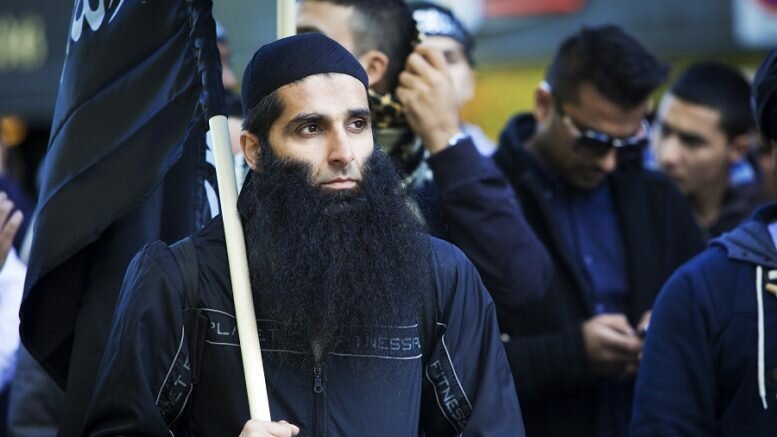How can the educational system deactivate Muslim fundamentalist mentality?
«Norway wants to ban full-face Muslim veils in schools and universities while teaching is taking place, arguing that the garments prevent adequate communication between students and teachers. Oslo is following in the footsteps of European countries such as France, Belgium and the Netherlands, which imposed restrictions on wearing burqas and niqabs. However, Norway would be the first Nordic country to introduce such a ban, reflecting a growing polarization of the immigration debate in the region and across Europe». Every word in this statement can initiate ongoing endless debates.
Islamic fundamentalism and its different manifestation have been a great threat not only to Europe but for Muslims as well. The majority of Muslim communities in Europe are a result of migration or seeking refuge due to an unbearable situation of their homelands; domestic clashes and sectarian conflicts are major problems in these areas. Those who experienced such tensions flee to other countries hoping to build a new life.
A new country means a new language and culture. In order to assimilate in a new environment, migrants need to reform most of their ingrained outlook, including their religious principles. Most of the migrants’ families experience double standard lives, one which is in harmony with the target society and second which is inside their homes, where they are sure that they can be themselves, without wearing a mask. Major challenges await children from such families, especially those who were too young at the time of migration or who was even born in the new society.
Culture Clash
This generation is exposed to non-religious education that conflicts with what they experience at home. Lack of proper religious education makes this generation so vulnerable that any type of wrong and extreme information will be digested by their starving need for knowledge. On the other hand, they feel alienated from the rest of society, something which triggers an urge for rebellion. This combination leads to shape rebellious youth, who are both bullies and vulnerable at the same time. Ill-informed, brainwashed, excited youngsters are the best bait for extremist groups. The perusing typology of the extremist’s groups manifests the fact that the members belong to two radically different backgrounds.
Some came from areas which have been bashed by poverty. Famine and/or domestic conflicts result in poverty that made the money being paid by the extremists more appealing. Muslim extremists use tempting financial offers like paying huge salaries and promise their fighters to provide for their families even after they died.
The remainder comes from European countries, some of them are the second or third generation Muslim migrants who can’t overcome the feeling of detachment. They experience personal and social freedom; the valuable treasure that their parents found in Europe. So why can’t they adapt to the existing situation? How can the extremists bridge the void and hunt for them?
As stated earlier, one of the reasons is that these children don’t have a sense of belonging. They obviously see there is a huge gap between them and their classmates at school, the educational system is not providing the religious information that they need, and if they feel inner force to fit in, they naturally prefer to stick to their own small communities where they have more in common with.
Knowledge is a beacon which enlightens all dimensions of life. Extremists use the torch in their favourite direction to derail new members. It is important to educate young Muslims in a way so that they can distinguish between true and false information regarding their religion. They need to be armed by the weapon of empirical and critical thinking to filter and evaluate between a straight and twisted interpretation of the Quran.
Depending on the country and practice they are looking for, these young Muslims can be exposed to any kind of information and discourse, the most critical one is discourse into violence, which is a type of reading the Quran and explaining the Sharia in such a way as to justify all kinds of violence and brutality.
What is the solution to immunise society against the virus of fundamentalism?
Universities can, in this case, promote a scholarly Islamic version which integrates with a democratic society. Universities, regardless of their location, have practical tools to establish a type of discourse which is free from violence. Islamic countries have witnessed the destructive power of fundamentalism as well.
For example, not many years ago, the dominant discourse of major Islamic centres- as the sole source of presenting the Quranic interpretations- was a bipolar discourse, one is either a friend or a foe. In such discourse, the west, for the most part, stand as “the enemy”. Whatever is being preached by the West is also rejected.
However, when Islamic countries tasted the bitter poison of fundamentalism, the discourse of “dichotomy” between the West and the East shifted to “dialogue” between them. One example is the case of women rights. Rights of women have been a bloody battlefield between radicals and the West, but now we hear new interpretation from old voices: «Polygamy is an injustice to women, family and nation». These types of discourse, which is in line with global harmony and helps the unity of the world, can be promoted by scholars from both sides.
A practical example of such a balance is the Republic of Turkey, with 97% Muslims and more than 83 thousand mosques, it is a good model of an Islamic nation with a secular government, where people enjoy personal and social freedom, and to a certain degree, freedom of speech.
The need for new discourse for Islam magnifies when we are fully aware of misconceptions and ill-interpretations of Islam by violent Islamic groups. Islam is a religion of forgiveness and respect to all human beings, it insists on moderation, not extremism, it is the religion of inclusion, not exclusion. These are the main pillars that Muslim society need to learn and preach to their next generations from childhood, so that young Muslims will have concrete criteria to compare violent interpretations of Islam with moderate Islamic rules. The western governments need to encourage this version, which can interrupt the discourse of violence; not only in content but also in practice.
This article is written for Norway Today by Zahra Moravvej. Zahra is a Masters student of the University of Oslo. Her field is Middle Eastern and Asia Studies.
© Zahra Moravvej / #Norway Today











